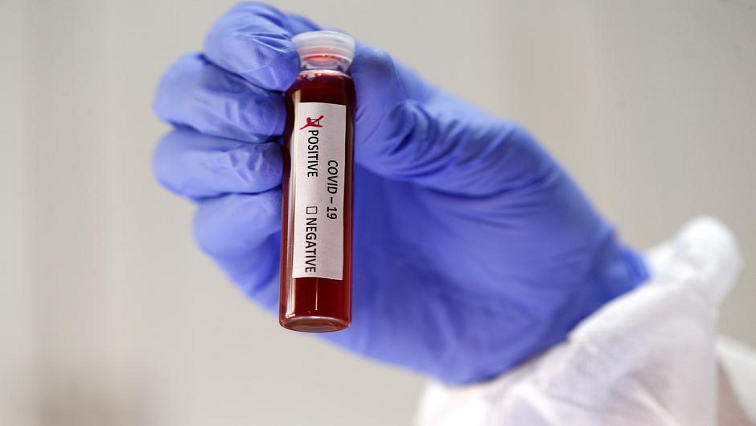South Africa has recorded its first COVID-19 death of a patient who had no underlying medical condition – a 57-year-old man who succumbed to the virus. This was revealed by Health Minister, Zweli Mkhize speaking at a media briefing in Pietermaritzburg on Monday evening.
Mkhize says South African now has 2 272 confirmed coronavirus cases, up by 99 from the last figure 2 173. COVID-19 deaths have risen to 27.
There are 2272 confirmed cases in SA and 2 more deaths in total there are 27 deaths #COVID19
— Department of Health (@HealthZA) April 13, 2020
Mkhize says one of the deaths is a 68-year-old man who had underlying diabetes and chronic renal disease.
“The latest number of positive cases today is recorded at 2 272. That means we’ve got 99 new recorded cases. Regrettably, we have also recorded two deaths; one from the Western Cape, a 68-year-old man who came in with acute respiratory distress with underlying diseases of diabetes and chronic renal disease. But the one in Gauteng is the one who is causing concern to me. He’s a 57-year-old man who was confirmed to be positive.”
The health minister says they have identified 11 406 contacts of people who tested positive.
“At this point, we have managed to screen 438 815 people in the whole country. And we have referred out of that total, 4 537 people for testing who have gone into various government facilities for testing. We have also identified contacts of the people who have been found to be positive; 11 406 contacts. Of those, already 9 675 have already been identified and interviewed.”
SA COVID-19 Curve
Epidemiologist Professor Salim Abdool Karim says statistics show that South Africa may have beaten the curve on COVID-19. He was participating in a debate with Mkhize and health professionals on the coronavirus pandemic.

Professor Karim says that since the lockdown was implemented on 26 March, the case numbers appear to be stabilising.
“So, when you look at this curve, what you can see is that we were on a simple trajectory like every other country, increasing rapidly day by day. And then suddenly on the 26th of March, it turned and started going down again and as it went down, it reached a point somewhere around 60-70 cases a day and it sort of hovered around there. Not a single country that we’ve seen has this kind of turn.”
Scientists have warned against an abrupt and sudden end to the nationwide lockdown. They are also participating in the COVID-19.
Professor Karim says an abrupt end of the lockdown puts the country at risk of undoing all the progress that it has made so far.
“We know that if we end the lockdown and we end it abruptly, we may run the risk of undoing all of the effort and the benefit we’ve achieved because then we’ll be putting high risk and low risk people together, travelling in the same buses, taxis and trains. We have to do something about it. We have to avoid that situation and so, we need to think about and plan for a systematic easing of the lockdown, starting with transport hubs and then working our way down from the lowest risk to the highest risk.”
In the document below, Professor Salim Abdool Karim explains the COVID-19 curve in South Africa:
‘COVID-19 outbreak delayed’
Mkhize says the storm the country is facing with the COVID-19 outbreak has just been delayed and has not dissipated yet. Speaking at a media briefing in Pietermaritzburg, Mkhize has thanked President Cyril Ramaphosa for his leadership in extending the lockdown period to the end of April.
Mkhize has warned South Africans not to become complacent about COVID-19.
“To defeat COVID-19 is no longer an issue of a nurse and a doctor. It is actually about society. It is actually about going in a combat zone and fighting this infection. I do want to say that at this point the indications we have, as President has indicated, are very promising. But we did say before, whilst we see some very promising elements in the response, it is still too early and therefore, if there’s any turn in the events in the outbreak, we may not have other warnings. So, I think it is important for us to keep remembering that we are still traversing through a storm that is gathering and the storm is not over.”
Mkhize says common platform for information-sharing is going to be created. He explains that the discussions focussed on infection control protocols, as well as how beds will be made available from the private sector for public sector patients with COVID-19.
“Therefore, it’s no longer about public or private. We got to do the same thing and we have to do them properly. It was important that all the private hospitals had to adhere to standard operating procedures and also follow the clinical guidelines that are given by the NICD, which is basically our institution that guides everyone’s response in this case. Everyone is actually obliged to follow those protocols, particularly as it relates to the infection control and prevention of the spread of COVID-19.”
Mkhize says there are a number of private hospitals they are currently monitoring in KwaZulu-Natal.






